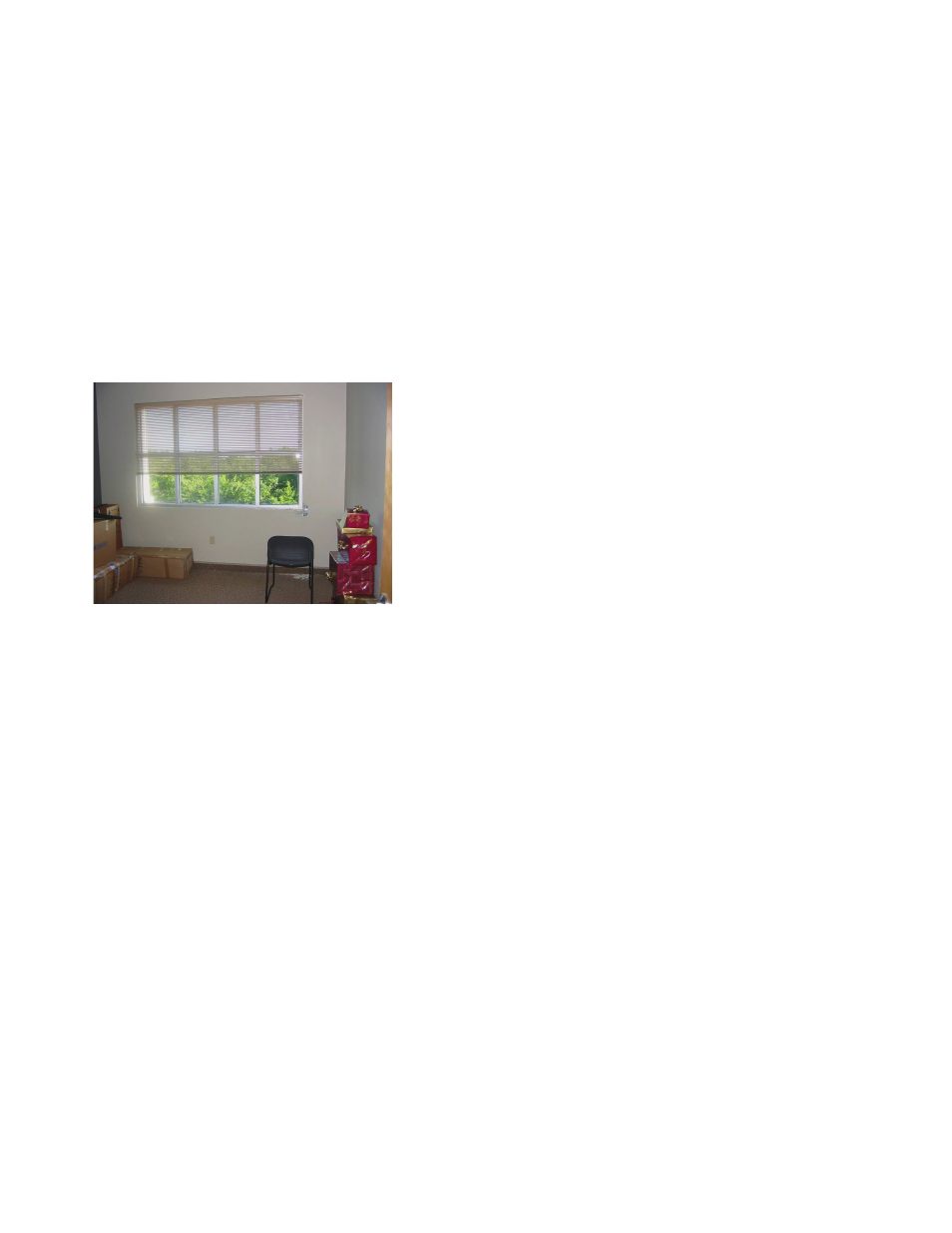Retrotec USACE User Manual
Page 157

Appendix D D27
D.2.2.4 Clean Hot Air/Gases Warmer Than 93.3 °C (200 °F) Being
Exhausted Outside (Waste)
Energy is used to heat air and gases. This energy can be recovered if the air and
gases are being exhausted outside. Air–air or air–water heat exchangers can be
used to recover this heat being exhausted from heated air or water being used
within the building. For this to be effective, a temperature difference of suffi -
cient magnitude must exist between the two fl ows of either air or air and water.
Typically temperatures at or greater than 93.3 °C (200 °F) are required of the
air/gases being exhausted outside.
D.2.2.5 Failure to Reset Temperature of Unoccupied Spaces
(Waste)
Figure D45. Unoccupied room that could
have its temperature reduced in winter.
When spaces become unoccupied, the comfort conditions within the space can
be reset to save energy consumption (Figure D45). This is typically accom-
plished by resetting the space cooling setpoint up to 29.4 °C (85 °F) during
the summer cooling period and resetting the space heating setpoint to 12.8
°C (55 °F) during the winter heating period. It is advisable to limit relative
humidity to 60% relative humidity (RH) or below during the reset period to
avoid microbial growth in the unoccupied space. This can be accomplished
with a humidistat connected in parallel with the space thermostat. In this way,
air conditioning will operate if the space temperature is above 29.4 °C (85 °F)
or if the relative humidity exceeds 60% RH.
